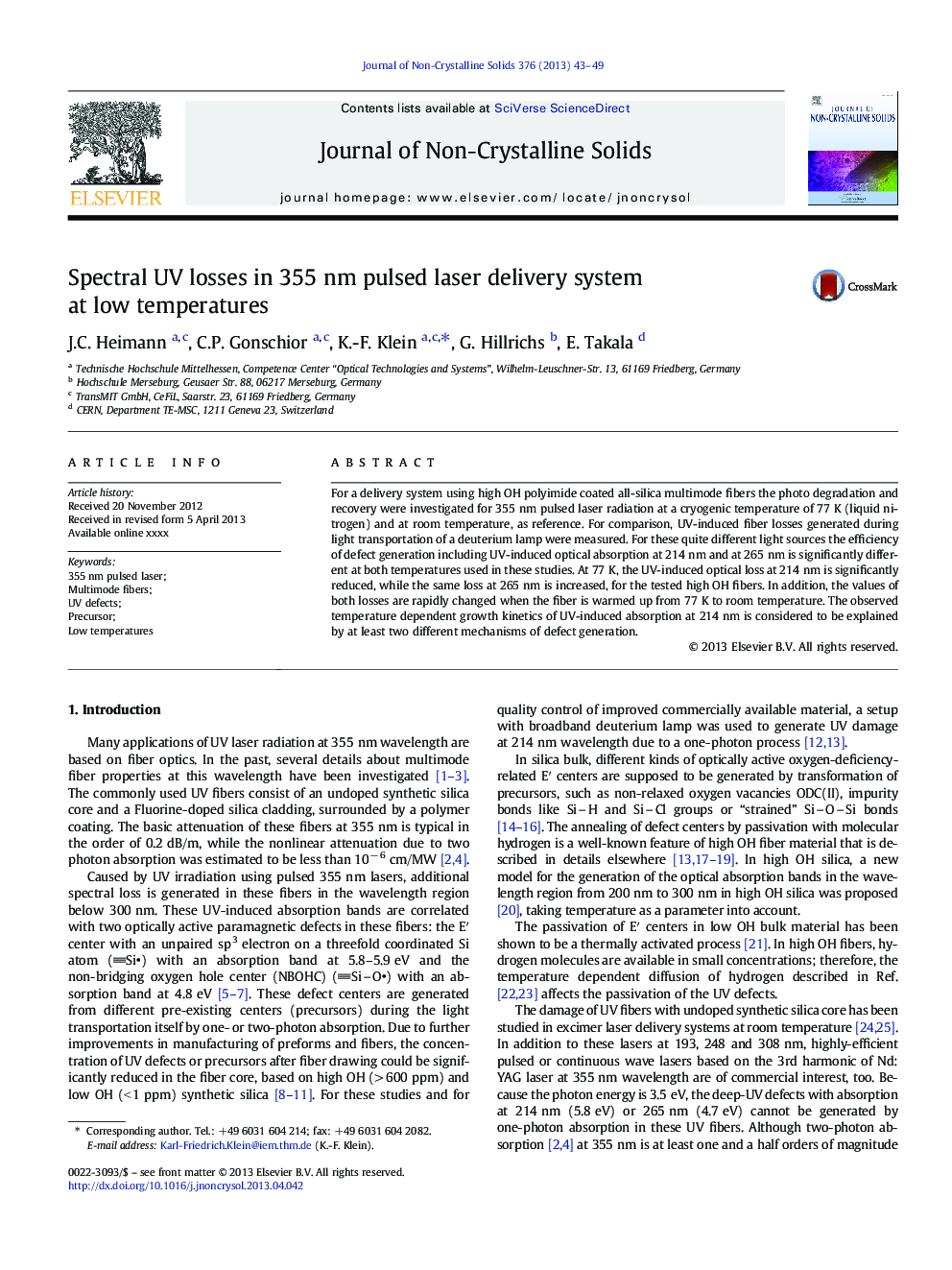| Article ID | Journal | Published Year | Pages | File Type |
|---|---|---|---|---|
| 7903587 | Journal of Non-Crystalline Solids | 2013 | 7 Pages |
Abstract
For a delivery system using high OH polyimide coated all-silica multimode fibers the photo degradation and recovery were investigated for 355Â nm pulsed laser radiation at a cryogenic temperature of 77Â K (liquid nitrogen) and at room temperature, as reference. For comparison, UV-induced fiber losses generated during light transportation of a deuterium lamp were measured. For these quite different light sources the efficiency of defect generation including UV-induced optical absorption at 214Â nm and at 265Â nm is significantly different at both temperatures used in these studies. At 77Â K, the UV-induced optical loss at 214Â nm is significantly reduced, while the same loss at 265Â nm is increased, for the tested high OH fibers. In addition, the values of both losses are rapidly changed when the fiber is warmed up from 77Â K to room temperature. The observed temperature dependent growth kinetics of UV-induced absorption at 214Â nm is considered to be explained by at least two different mechanisms of defect generation.
Keywords
Related Topics
Physical Sciences and Engineering
Materials Science
Ceramics and Composites
Authors
J.C. Heimann, C.P. Gonschior, K.-F. Klein, G. Hillrichs, E. Takala,
